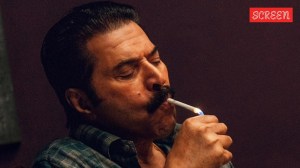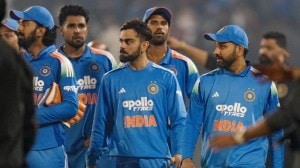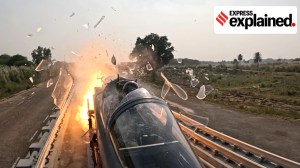Lt Gen Aurora, hero of 1971, dies at 89
‘‘He was just like me. He was a first class soldier who did a first class job.’’ That’s how Field Marshal Sam Manek...

‘‘He was just like me. He was a first class soldier who did a first class job.’’ That’s how Field Marshal Sam Manekshaw will always remember Lt Gen Jagjit Singh Aurora, his Eastern Commander who swept into Dhaka in December, 1971 and forced the Pakistan Army to surrender. Aurora, 89, passed away in a Delhi hospital this morning. He is survived by his son and daughter.
Commissioned into the Punjab Regiment in 1939, Aurora will be cremated with full military honours at the Delhi Cantonment on Thursday.
‘‘He was a good soldier, he worked conscientiously and did a first class job. He was given a task and he saw it through. He brought on the surrender and his wife went with him to receive it,’’ recalled Manekshaw.
On December 3, 1971, the night before D-Day with Pakistan, Aurora ordered a bottle of Black Dog at his Kolkata Command residence. He raised his glass, toasted his top officers and said, ‘‘Gentleman, the war starts tomorrow. After this drink, let’s get down to business.’’
The next day, Aurora launched a swift two-week operation that liberated Bangladesh from Pakistan on December 16. Some 93,000 Pakistan Army laid down their arms as Lt Gen A A K Niazi surrendered to Aurora—that’s the war’s most famous picture.
But Col S S Tyagi, Aurora’s aide-de-camp during the war, remembers that the signing of the instrument of surrender was not followed by any revelry that people associate with war victories.
‘‘Gen Niazi and Pakistan’s governor in the region Maj Gen Farman Ali were brought to the Bengal Area Mess in Kolkata where they were kept under high security. But Gen Aurora granted them all facilities and gave them their dignity. When they were brought to Command headquarters at Fort William for interrogation, he was very courteous to them. He honoured his enemies,’’ Tyagi told The Indian Express at the house of Aurora’s daughter Anita Kalra.
Even today, Army ranks have bewildered admiration for Aurora’s blistering victory. Not simply for its short duration but for the methods Aurora used. Col P S Vasudevan, Aurora’s staff officer during the war, said, ‘‘The beauty of his strategy is that there were no major engagements with Pakistan during the war. He instructed his men to form penny pockets that surrounded Pakistani units and cut them off from each other. It was a brilliant strategy.’’
Famously cool-headed, Aurora played golf at 9 am every morning during the war.
Lt Gen J F R Jacob, Eastern Command chief of staff in 1971, remembers Aurora as ‘‘a fine gentleman, very involved with his work and all other activities as well.’’
Aurora’s glowing aura of being a war hero was matched only by the humility with which he receded into civilian life after he retired from the Army on February 13, 1973.
His nephew Gurpreet Singh Bindra, who lived with the General in Kolkata during the war, said: ‘‘He retired with no airs, no requests for special posts, nothing. He had a doting family, a wife he loved very much. He was happy to return quietly into normal life and let the Army’s new commanders run the show as they rightly should.’’
Between 1986 and 1991, Aurora was an Akali Dal MP in the Rajya Sabha. In 1984, he opposed Operation Bluestar and fought for the rights of the victims of the anti-Sikh riots that followed Indira Gandhi’s assassination. In more recent times, he was an insightful critic of intelligence lapses that led to the Kargil conflict.
All of Aurora’s family, including his grand-daughter Sonam Tripathi whose new-born son allowed the General to see four whole generations ten days ago, are unanimous that his strength—the very force that allowed him to live in remarkable good health for so long—was his wife Sardarni Bhagwant Kaur. ‘‘After she passed away in 1997, he just withered away,’’ said his grand-daughter.
But his bustling prepossession with strategy and deep study into the use of air power and new mechanised forces was lost on no one. In October last year, Field Marshal Manekshaw said: ‘‘While Jaggi did all the work, I got the baton (of Field Marshal).’’
- 01
- 02
- 03
- 04
- 05































